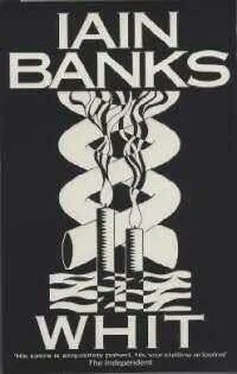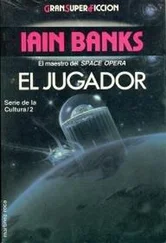Fêted at breakfast as much as at supper - there were rose-petals in my tea and I had to let Gertie Fossil wash my feet - I told her and her son that I needed to reconnoitre various aspects of the city, and would return once I had completed my scouting expedition. I declined Gertie's offer of a guide in the shape of Lucius - he looked relieved too, behind an anxious smile - and assured her that I could look after myself. Gertie still looked worried, and so I mentioned that I felt doubly secure knowing that I had the jar of zhlonjiz upon my person; Sister Gertrude was suitably impressed that the semi-legendary salve had been entrusted to my care, but seemed satisfied that my safety was thereby guaranteed.
And so I went out amongst the Unsaved (also known as the Wretched, the Insane, the Norms, the Obtuse, the Reject, the Clinker, the Chaff, the Cluttered, the Rank, the Passives, the Benighted and the Asleep), uncomfortably conscious of the fact that I was walking away from the only other two people in the city who were numbered among the Saved (likewise the Enlightened, the Sane, the Preferred, the Acute, the Chosen, the Refined, the Engraced, the Clear, the Commissioned, the Active, the Dawned and the Awoken), my jacket pockets filled with the more precious items I had brought from the Community and a couple of cheese and mango pickle sandwiches prepared by Gertie.
The day was warm and I left my hat dangling down over the back of my jacket, which had been cleaned as best she could by Gertie overnight. The main thoroughfares of the city were choked with cars, the pavements aswarm with people. The air reeked of burned petrol; lurid advertisements and shop windows screamed for attention from every side. A few people looked at me oddly -I did not think that my monochrome garments were particularly different from those worn by many of the youths - of both sexes - whom I saw, and I observed a few people with hats, so perhaps it was the staff I carried which set me apart. I felt awkward and tense in the midst of so much strident clutter and so many people and after a while I took to the quieter streets, away from the stressing mass of humanity.
Some children in a school playground shouted through the railings at me, accusing me of being what they called a Loony, and asking for 'a shot of your stick. Does it turn into a power sword?'
I had been going to ignore them, but turned and approached instead; they shrank back initially, then - perhaps encouraged by their numbers and by the railings between us - they came back.
'What's a power sword?' I asked
'You know like in Transforcers ; on Saturday mornings,' one of them said.
I thought for a moment. 'You mean on television?'
'Aye! Of course! Yeah! On the telly!' they chorused.
I shook my head. 'We don't have a television set in our house.'
'What? No ! Yer kiddin'! Get outa here! You live in the loony bin, missus?'
'No, I live in the Community-'
This caused some mirth amongst a few of the older ones, one of whom - the one who'd talked first - asked, 'What's that on your forehead?'
'It's a mark of respect,' I told him, smiling. 'A mark of love, and faith… what's your name?'
'Mark,' he replied, to some giggles. He looked defiant. 'What's yours?'
'Well, I have a bit of a funny name,' I told them. 'I am The Blessed Very Reverend Gaia-Marie Isis Saraswati Minerva Mirza Whit of Luskentyre, Beloved Elect of God, III.'
More laughter. The bell rang then and they were called away by a teacher who looked at me suspiciously. I waved to the children and blessed them under my breath, then turned away, looking at the stave in my hand and thinking how slight are the signals by which we serve notice - inadvertently or not - that we are not part of the Bland world. It also struck me that such signs are often emblems of an unfamiliar practicality, and how misguided it is to believe that the greater world is somehow ultimately cosmopolitan and tolerant.
My own school days - not long over I suppose, judged against the scale of a full life, though they seem moderately distant to me now - were passed at the Gerhardt Academy. We have been sending our secondary school children as day pupils to the Academy - just outside the village of Killearn, on the western flank of the southern hills - for thirty years, ever since we'd had some trouble with the local authorities; they were and are happy with the standard of our primary teaching but demanded we put our elder children through more formal educational channels. The Gerhardt Academy is a school for the children of parents who wish them to have an education that is officially recognised but less strictly structured than the state or private norm. It was still a long-term aim of my Grandfather to educate all Order children up to secondary standard and even to lay the foundations for a college some time in the future, but in the meantime the Academy provides a satisfactory secondary alternative.
I had both mostly enjoyed the experience at the time and felt afterwards that I had benefited from it. To this day whenever I see the younger Brothers and Sisters heading off to catch the bus in the morning, I still feel a smidgen of nostalgia for the days when I too carried a Sitting Board and a satchel over the bridge, past the Woodbeans' house and up the drive to the rusted gates (the satchels are self-explanatory; the boards were because the bus had padded seats which we were not allowed to use, so took our own hard wooden boards to sit on. Rebellion then consisted of sitting on the soft seats and using one's board with a roller skate underneath as a skate board).
The Academy, housed in a high and Gothic castle in the trees above Killearn village, is a good place to learn; I'm sure to some of the pupils and parents it seems a strange, spartan and even eccentric institution with its odd combination of archaic fixtures and traditions (I was given slates and chalk to work with during my first year), free-flowing curriculum, easy discipline and unconventional teachers, but to us Order children it tends to seem like a haven of luxury, order and common sense after the Community.
In addition to its formal scholastic role, the Academy has traditionally been the place where young Luskentyrians learn more about the non-academic world, mixing with Unsaved children and being exposed to the more common adolescent interests such as pop music, comics, the adulation of sporting and cultural heroes, the use of popular slang and so on. This can be a traumatic experience for a child of the Community, however we tend to arrive forewarned by those who have gone before us and in groups that can offer support to any individual in need of it, plus of course we have our Faith to comfort us through any teenage angst that may result. Furthermore, possessing a generally superior (if usually only theoretical) knowledge regarding sex and drugs compared to our Unsaved peers - gained in the enlightened atmosphere of the Community - means that we can give as good as we get when it comes to peer-impressing.
So, I had enjoyed my school days and I suppose I could even be said to have shone academically, if that is not too immodest. Indeed, a few of my teachers had tried to persuade me to go on to university, either to read physics or English, however my Grandfather and I knew that I had been marked out for a more holy purpose, and that my rightful place was with - and in - the Community.
I turned and walked away from the school.
* * *
In the end it took me two days to get out of Edinburgh. I spent that day fruitlessly trying to work out how to stow away on a Motorail train at Waverley station, but it looked too difficult (to my surprise, I saw a notice that said the service would soon cease altogether). I could just have jumped on a London-bound train and trusted to my wits to keep away from a guard -we have our own nonsense language and a look of somehow foreign incomprehension perfected for when one is caught in such situations - or I might have tried a long-range variant of the technique we call Back Bussing. However it struck me that this would prove problematic over such a distance, and - more to the point - there was something insufficiently holy about this approach. We are not averse to travelling in trains - either sitting on the floor of the guard's van or using the wooden Sitting Boards we carry to avoid the luxury of soft furnishings - but my mission was so important I had to be rigorous in my piety, and there was something too beguilingly easy about simply avoiding paying my fare on an ordinary passenger train.
Читать дальше












